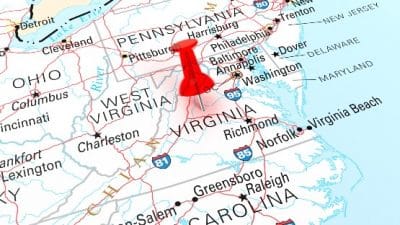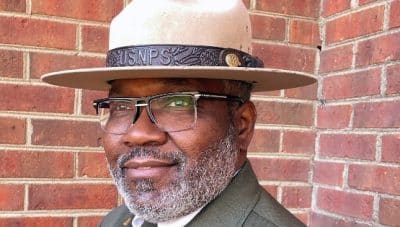
[email protected]
“Radical centrist.” The words don’t seem to go together, but then you listen to Mark Warner describe the concept that he’s trying to sell, and it makes a lot of sense.
“We’re going to have a window in January of ’09, whether it’s McCain or Obama, and if we can’t find a bipartisan cooperation and an ability to work with the new president, I think the American people’s frustrations are going to start to build over,” began the former governor, who leads another former governor, Republican Jim Gilmore, by a macaca-proof margin in the polls in this foregone conclusion of a U.S. Senate election, by way of explanation of this, well, radical notion.
I caught up with Warner yesterday in Staunton on a campaign stop that drew about 200 people in what was just a few years ago the reddest of red locales, but now seems to be a deepening shade of blue. Internal poll numbers that I’ve been made privy to have the Democrat Warner getting close to 60 percent of the vote in the Sixth District at this point in the race, and with that inevitability starting to sink in, we could see the gap run up even more by Election Day.
But it’s important to point out that as blue as the Valley and the rest of Virginia are beginning to appear, it’s a different shade of blue than you see in, say, Massachusetts or California. Warner is the architect of the Democratic Party resurgence in Virginia, and his radical centrism is what defines what we could call the Warner Way.
Get him talking about fiscal policy, for example, and you’ll hear him talk about fiscal responsibility in a way that makes the heart of your average fiscal conservative in the Republican Party go a-flutter. “We’ve got to start bringing some sanity to our fiscal policy,” Warner told the voters assembled for his campaign event in Downtown Staunton yesterday afternoon. “What we’re leaving our kids and our grandkids in terms of deficits and trade imbalances, and the worst kind of tax increase possible right now, a declining dollar – we’ve got to recognize that we’ve got to send people to Washington who can read a balance sheet.”
I asked him later in a one-on-one interview to expound on the idea of how we can bring that sense of fiscal sanity to Washington. “You’ve got to start by showing you can cut,” Warner told me. “I mean, you’re not going to solve the whole problem. But until you can earn people’s trust that you can actually slow spending – when I was governor, I got 46 governors, Democrats and Republicans, to agree to a plan that would have slowed Medicaid spending. It wasn’t perfect, but at least we all said we would take it on. But right now, neither party has any credibility on fiscal matters.”
The radical centrist Warner is also bringing some degree of sex appeal to the otherwise totally unsexy issue of infrastructure improvements. He said in his remarks to voters yesterday that he’d like to see presidential candidates Barack Obama and John McCain talk more about what we can do to reinvest in our country’s infrastructure. “I know we all say a prayer when we’re on 81 that the truck traffic doesn’t overrun us,” Warner said. “It’s got to be roads, it’s got to be rail,” he said to wild applause. “It’s got to be broadband connectivity. If we make sure that people, not just in the Stauntons and Augustas, but in the Baths and Highlands as well, if the young people in those communities are going to have a chance, they’ve got to have a 21st century infrastructure and faster Internet connections.”
I followed up on that point later in our one-on-one. “It’s about jobs, it’s about quality of life, it ties into energy. And the challenge is going to be our traditional source of funding for it, gas taxes, is probably not going to be a long-term solution, because we’re going to move to more fuel-efficient vehicles. So the challenge is, how do you build a plan that’s not just geared toward the metropolitan areas, but also includes things that appeal to smaller communities and rural communities. That’s why I think connecting rail and broadband into it, and not just roads, is important,” Warner said.
The Warner Way is also evident in his approach to energy, which is an amalgam of ideas from the left with regard to the development of alternative energies and the right with more traditional offshore drilling mixed in for good measure. “It’s going to require a new approach in Washington,” Warner said of the challenge presented to us in the form of the ongoing energy crisis. “It’s going to require, yes, development of things like solar energy and wind energy. It’s going to be a fresh look at nuclear. It’s going to be continuing to find ways to burn coal clean. It’s going to mean, yes, being willing to allow states to drill off our coasts, although those who say that’s going to provide an immediate relief just aren’t telling you the truth. It’s part of the portfolio, but it’s 10 years away before you’d see a drop from the oil and the gas that would come from our coast. It’s got to be part of the mix, but the idea that there’s any simple solution here – you’ve got to have a whole, balanced approach, and that’s what’s been missing.”
The secret to the Warner Way is that it works because he works it to make it work, if that makes sense. Warner is the rare policy wonk who can backslap and handshake his way into getting what he wants to see in terms of policy translated into reality. Which should serve him well in the everybody-here-is-a-chief atmosphere that is the United States Senate.
“A lot of this is based upon the ability to build personal relationships,” Warner told me. “The only way I was able to find common cause in the (state) legislature was, one, it sometimes made folks on my side mad, and two, I spent a lot of time trying to build a relationship with people, but taking them to lunch or dinner, drinking a beer, playing basketball, you know the stories. And my sense is that it wasn’t that long ago, the ’60s, the ’70s, the early ’80s, where it was more of the norm that people actually cooperated. And I know that people say, We can’t get back to that. But I think the country is really in trouble if we can’t.”










